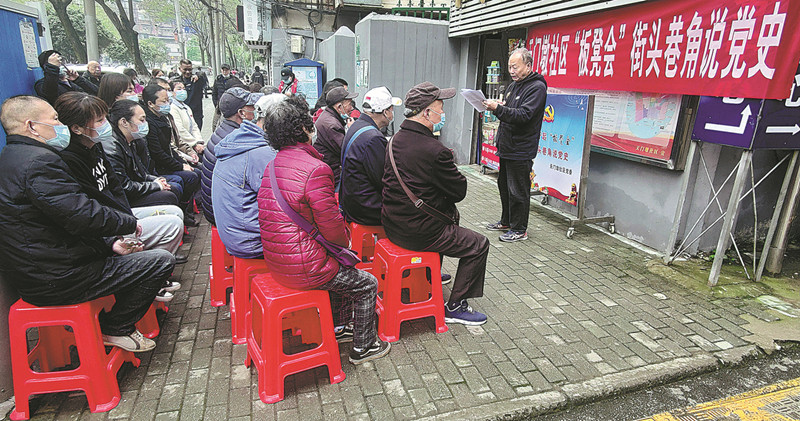Whole-process democracy brings positive results

Residents in the Tianmendun neighborhood of Jianghan district, Wuhan, Hubei province, attend a briefing on April 8 on policies adopted by the Chinese Communist Party. [Photo by Li Changlin/for China Daily]
In 2014, at a ceremony marking the 65th anniversary of the founding of the Chinese People's Political Consultative Conference, the national political advisory body, Xi said, "Democracy is defined not only by people's right to vote in an election but also by the right to participate in political affairs on a daily basis."
He said this depends on whether the people have the right to hold democratic elections, and also on whether they are entitled to make democratic decisions, conduct democratic management and exercise democratic supervision.
Experts said a series of institutional arrangements ensure the mode of democracy in China guarantees people's right to take part in democratic elections, consultations, decision-making, management and oversight, which constitute "whole-process democracy".
Different from Western-style democracy, which is often characterized by voting in elections every few years, Chinese democracy is a daily way of life for the people that leads to effective results, the experts added.
Wang Chen, vice-chairman of the National People's Congress Standing Committee, said during this year's NPC full session in March that whole-process democracy is "a hallmark of socialist democracy that distinguishes it from various capitalist democratic systems".
In March, the NPC adopted amendments to two laws concerning its organization and working procedures, with whole-process democracy being written into law for the first time in the country's legislative history.
- Top legislature schedules standing committee session for late February
- China's top legislator meets with Uruguayan president
- Senior legislator surveys Anhui on formulating outline of provincial 15th Five-Year Plan
- China's top legislator meets with British PM
- NPC deputies see more engagement with top court



